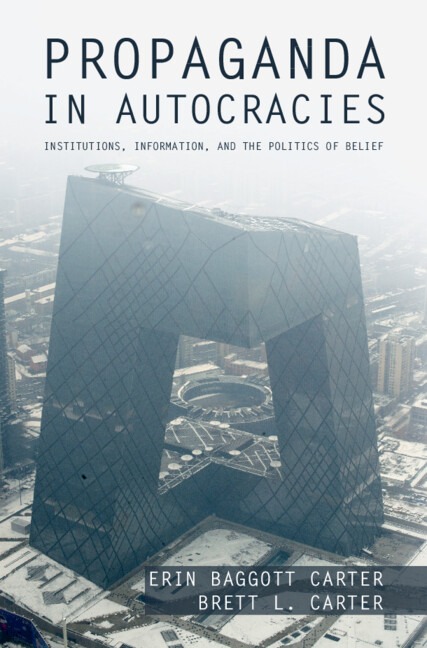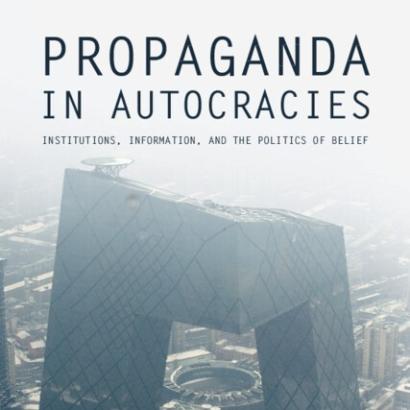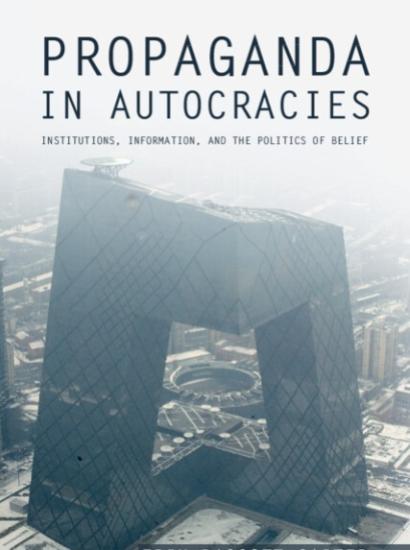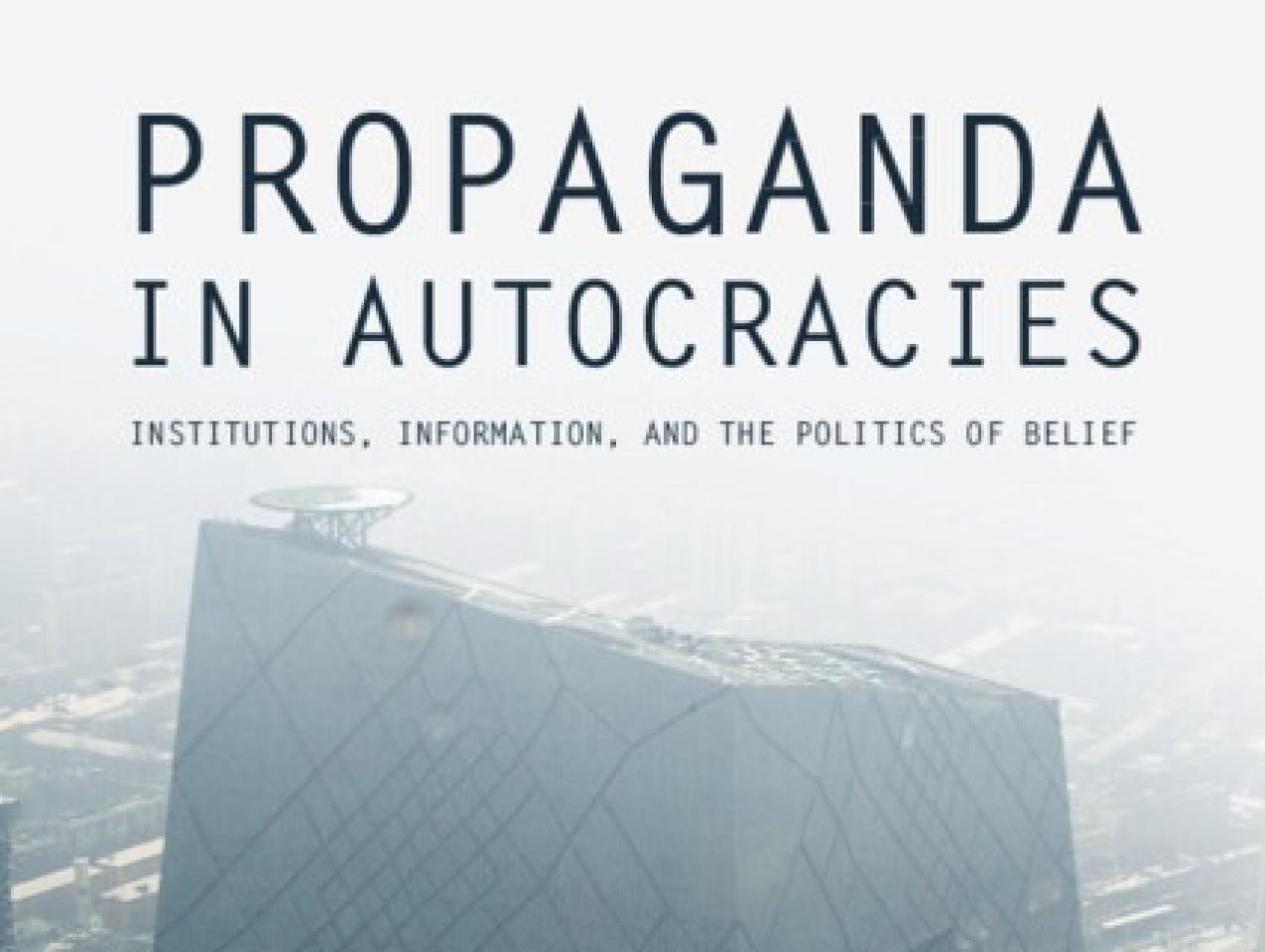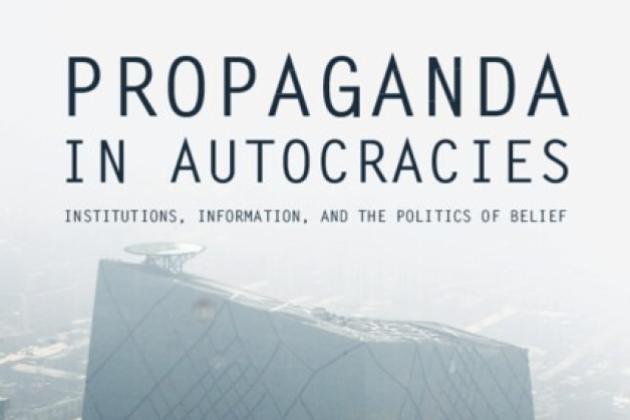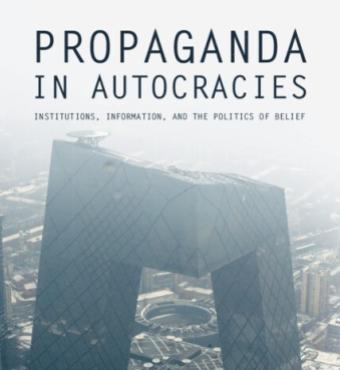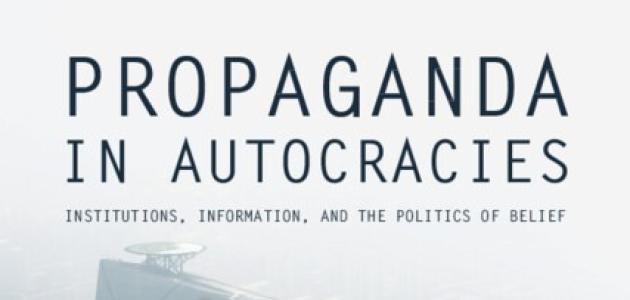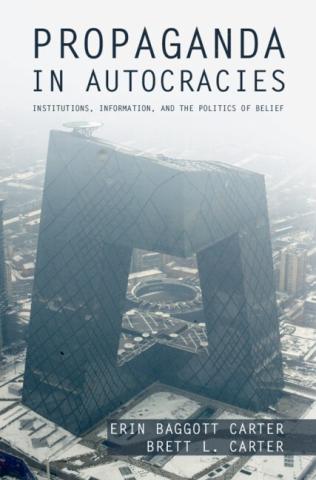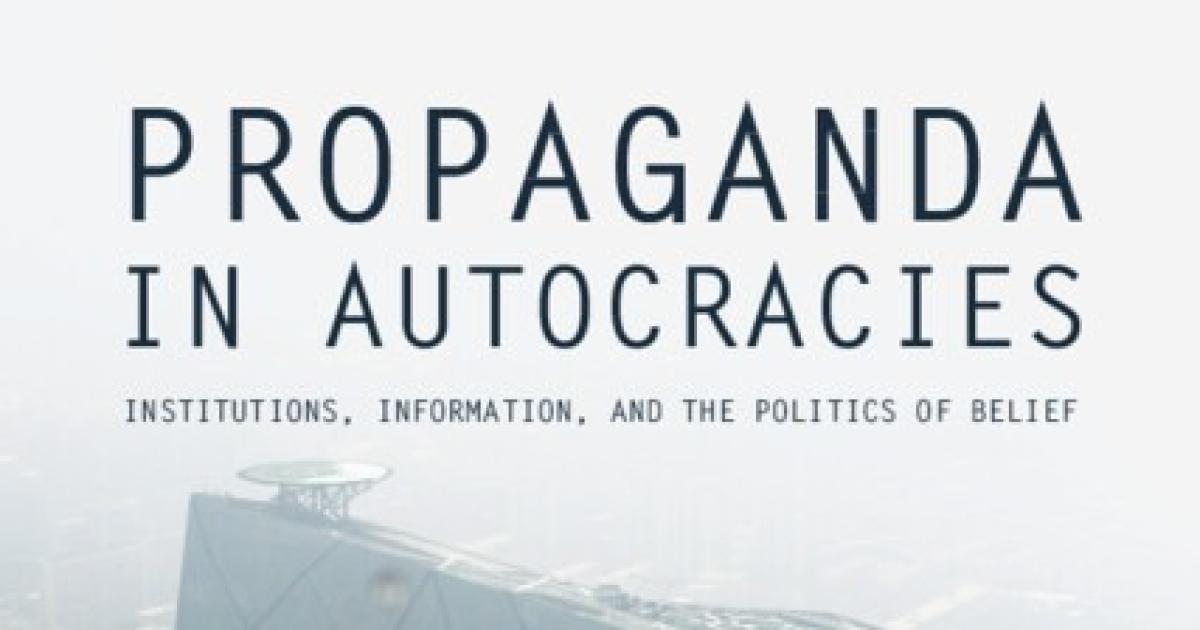Hoover Institution (Stanford, CA) — A 2023 book by Hoover Fellows Brett Carter and Erin Baggott Carter has won the Riker Award from the American Political Science Association.
Propaganda In Autocracies won the 2025 William H. Riker Book Award, granted to the best book on political economy published in the last three years.
In Propaganda In Autocracies: Institutions, Information, and the Politics of Belief, Brett Carter and Erin Baggott Carter gathered together a dataset of almost eight million newspaper articles from fifty-nine countries in six languages to explore the motivations, tactics, and aims of propaganda produced by authoritarian regimes around the globe.
“The world’s dictatorships are often closed to outsiders. Traveling can be difficult, and sometimes dangerous. Archives are generally closed,” the authors said. “Many citizens are scared to speak openly. But what repressive governments tell their citizens is extraordinarily informative: about the nature of the government itself, about its geopolitical ambitions, about how it views its citizens.
“We’re enormously heartened by the recognition,” they said about winning the 2025 Riker Award. “We really view our book as a starting point for a new, more sophisticated understanding of propaganda in the world's autocracies.”
Themes explored in the analysis of the propaganda featured in the book range from how published propaganda enhances or solidifies a leader’s credibility to the populace to how propaganda can be used to revise details of past events, narrate domestic life, or characterize friendly and hostile nations abroad.
When dealing with relations and perceptions of the United States and other democracies, Brett and Erin explore how America is portrayed in the propaganda produced in autocratic regimes. They describe how the Chinese Communist Party employs a strategy of selective truthfulness when portraying events in the United States, highlighting only negatives and failures. They also explore how autocratic regimes avoid bringing attention to mass protests, antigovernment revolts, and other similar activity in “other countries that exacerbate citizens’ grievances or compel them to engage in anti-regime behavior.”
In another section of the book, Brett and Erin explore whether autocrats can use sudden “bursts” of propaganda output to dampen popular protests. For instance, they write that the Chinese Communist Party employs a “forgetting strategy” of tailored propaganda around the anniversary of the Tiananmen Square massacre alongside an increase in the amount of online content they censor. More generally, they found a link between increased propaganda output in many autocratic regimes and lower protest turnout in the period immediately after the propaganda’s release.
Propaganda In Autocracies has already won the 2024 Hazel Gaudet-Erskine Best Book Award from the International Journal of Press/Politics.
The American Political Science Association also gave it honorable mentions in both the democracy and autocracy and comparative politics sections.
For more information, please contact Jeffrey Marschner, assistant director of media and government relations, at jmarsch@stanford.edu or 202-760-3200.







